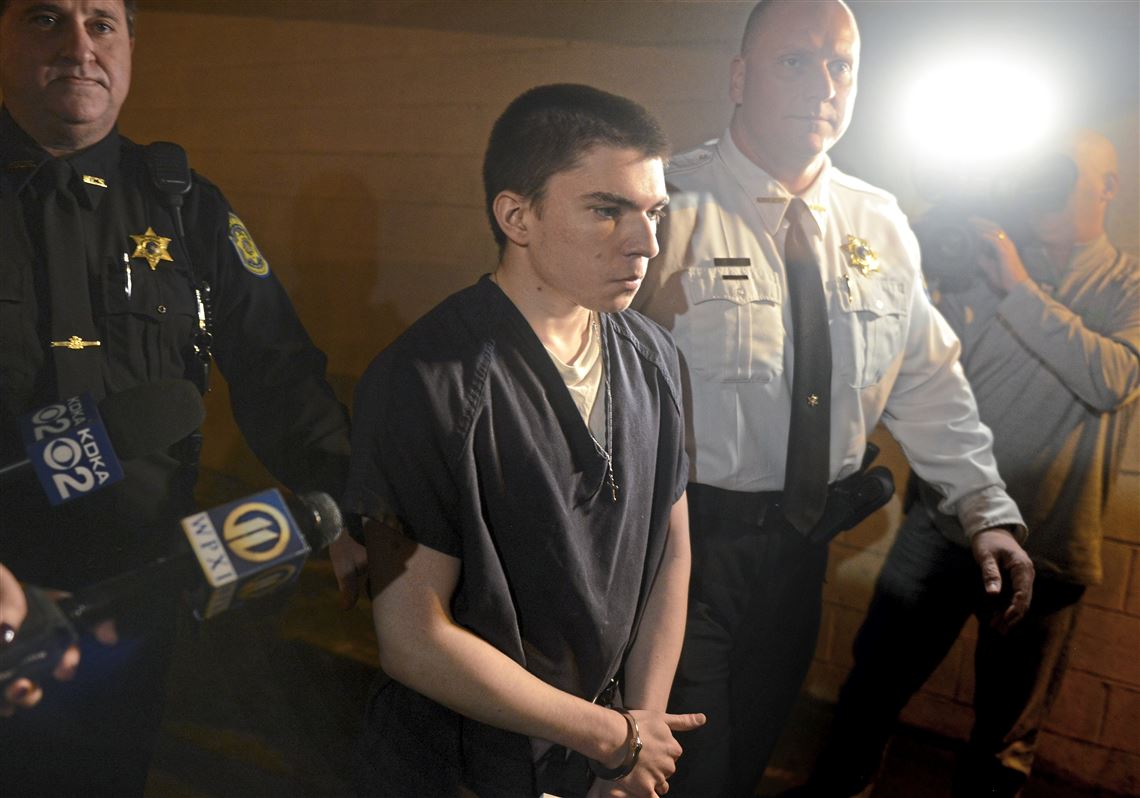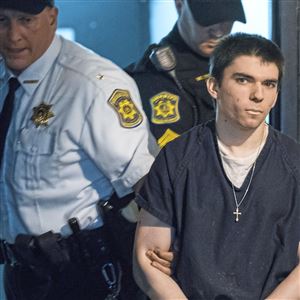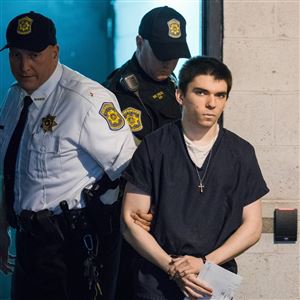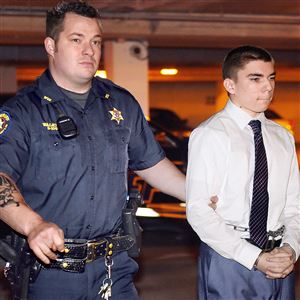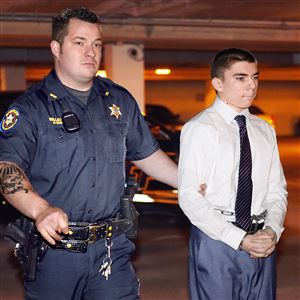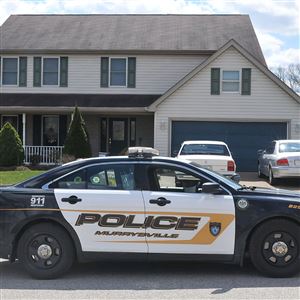Minutes before he was to be sentenced for the 2014 knife attack at Franklin Regional High School, Alex Hribal broke off his statement to the court and crumpled up his prepared remarks.
Holding the ball of paper tightly between his hands, the 20-year-old looked out at the packed courtroom Monday afternoon and spoke — as victims and their families listened from the gallery for any reason as to why he slashed or stabbed 20 students and a security guard in a school hallway that April.
"I would also like to say that bullying is such a problem these days,” Hribal said. “Treating each other the way people would like to be treated is the solution.”
He paused.
"I feel horrible about everything.There's no words I can use, and nothing I can say, to make it all better. There's nothing I can say to fix it."
Soon after, Hribal, who pleaded guilty to 21 counts each of attempted homicide and aggravated assault in October, was sentenced to 23½ to 60 years. He was also ordered to pay slightly more than $269,000 in restitution. Hribal was 16 at the time of the attack, in which four students suffered life-threatening injuries, but all survived.
Westmoreland County Common Pleas Court Judge Christopher Feliciani rejected the defense's argument that Hribal's actions were a result of bullying, and said Hribal's sentence was based on the seriousness of his actions and the physical and emotional scars left on the victims and their families. He also ruled that Hribal get mental health treatment while serving his sentence.
Some of the victims gave impact statements before the sentence was read. Kolden Cook, 19, who was stabbed in the back during the attack, talked about feeling "robbed of something you can never get back," and said he wondered if Hribal feels remorse.
"Does he feel a sense of righteousness or a sense of regret?" Cook asked. "If he feels the latter, there might be some hope."
Hribal's parents, Tina and Harold, gave emotional statements in defense of their son. Ms. Hribal, stopping at several points to cry, said she would have helped her son if she had known about his mental illness.
"I'm sorry, Alex," she said, through tears. "I'm sorry."
Looking up at the judge, she said, "I'm the one who needs sentenced, not him."
Mr. Hribal said his son’s mental illness was exacerbated by bullying, and recounted specific incidents of that bullying from the stand. He said Alex had made strides during his mental health treatment, and that he wanted his son to have a second chance at life.
"Alex wasn't the problem. Alex was the result of the problem," Mr. Hribal said.
Hribal, wearing a cross on a chain around his neck, stared blankly throughout most of hearing. He rubbed his eyes during his mother's statement and smiled slightly when his father, while explaining why his son was an easy target for bullies, mentioned his acne.
Hribal's testimony was the first time he had spoken publicly at length about the incident. When he was convicted in October, Hribal spoke only to answer the judge's questions. When the judge asked why he was filing a guilty plea, he answered quietly, "Because I am guilty."
In his statement Monday, Hribal said he wanted something good to come out of the situation, and that everyone dealing with mental illness shouldn't handle it alone. He said he thought his biggest mistake was falsely believing that if he took revenge, he would be happy.
He then continued without notes, and ended his statement with a "God Bless."
The attorneys for prosecution and defense spoke after Hribal's statement. Westmoreland County District Attorney John Peck said Hribal has no regret, and hasn't made a real apology. "This is what Alex brought about through his own volition and will," he said. In an impact statement earlier, Carter Bogur, 18, the brother of a victim, called the incident a “planned, methodical attack.”
The defense said that the justice system had let Hribal down, and that he needs treatment for his mental health issues.
"He should be going to a mental hospital," his attorney, Patrick Thomassey, said. "That's what he needs. I'd take him home with me now."
Mr. Thomassey in 2015 tried to get the case moved to juvenile court, where, if found responsible for the crimes, Hribal would have been free at age 21. Later he requested to enter a guilty but mentally ill plea, a distinction that would have meant prison time only if his condition improved with treatment first at a mental health facility. Judge Feliciani denied both requests.
Essentially, the attorney said, he'd exhausted his options, and the Hribal family wished to spare victims from recounting their stories at a trial and again at a sentencing.
CORRECTION: A previous version of this article contained an instance of misspelling the Hribal name.
Julian Routh: jrouth@post-gazette.com, 412-263-1952, Twitter @julianrouth.
First Published: January 22, 2018, 1:18 p.m.
Updated: January 22, 2018, 7:56 p.m.






